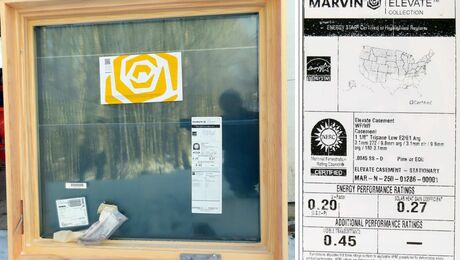Mold: inside vs. outside?
I’ve read various articles about mold. Most of those focus on moisture, humidity, condensation, and temperature differentials, but I’ve never read one that speaks directly and convincingly to the issue of why we have so many indoor mold problems and so few outdoor mold concerns. Is there something on the outside (sunlight?) that significantly limits it? Is there something _unique_ on the inside that encourages it? Can we bring some of that outside advantage to inside our homes to limit indoor mold concerns?
I suspect the answers are complex, but I’d love to hear that it really isn’t complex and there is something to be learned by the difference. It does seem like it would make a great theme for an article as well. Let’s hear your thoughts?
GBA Detail Library
A collection of one thousand construction details organized by climate and house part









Replies
If you notice mold doesnt like light. It grows best in dark places. inside walls, dark basements, corners that dont get much light.
Why do we see more in homes is because we create very favorable growing conditions. Building materials have changed combined with building practices that favor mold growth.
Jason,
Outdoor mold exists. Q&A columnists regularly receive questions about how to get rid of outdoor mold. See:
http://www.thisoldhouse.com/toh/asktoh/question/0,,216645,00.html
http://www.howtocleanstuff.net/how-to-clean-mold-on-outdoor-wood-surfaces/
http://www.concrobium.com/tag/outdoor-mold/
Here's a paper that talks about outdoor mold:
http://www.ucs.louisiana.edu/~hah5863/onlinecourses/itec350/project2.pdf
Jason, Mold plays an incredibly important role in nature. It aids in the breakdown of decaying organic matter, allowing the release of the constituent parts back into the environment and making them available as nutrients for other living things. It is usually selective in that it doesn't affect healthy plants or materials. There are mold spores in all outside air but in very low concentrations and exposure to these may actually be beneficial.
The presence of mold indoors indicates the conditions for decay are there and the mold is in effect saying it will help you get rid of theses deteriorating materials. Rather than it in itself being the problem it is an indicator. If the underlying conditions aren't addressed the mold can become so plentiful that it causes a health risk to the occupants. But really all excessive indoor mold is saying is that it wants to help you eliminate the decaying materials in your house and return the structure to the earth from whence it came.
Thanks Malcolm, Martin I was aware of outdoor mold and as Malcolm says it rarely reaches a level to be a major respiratory problem for us like indoor mold is often cited to be in a given house. (Yes, I'm aware that on certain days in certain areas there are mold+pollen alerts for those sensitive to that sort of thing.)
Malcolm, thanks for your fresh take on the subject.
Robert, it makes me wonder if some of our efforts to block UV might be counterproductive in this regard and there might be a way to carefully benefit from naturally occurring UV in building design. I can't claim to have a specific suggestion in mind though. I do find it interesting that we block it and then sell products that strive to produce UV to kill mold spores.
http://www.filtersfast.com/P-Honeywell-UV100E1043-UV-System-kit.asp?gclid=CMjqrIW30bkCFc-e4Aod_3AANA
Jason, That is a very interesting line of thought, although perhaps one which should be approached cautiously. There may be other problems with excessive UV exposure, such as the possible link with vision problems like Macular Degeneration. It would be interesting to know how much is just right.
I agree. Caution is important with this.